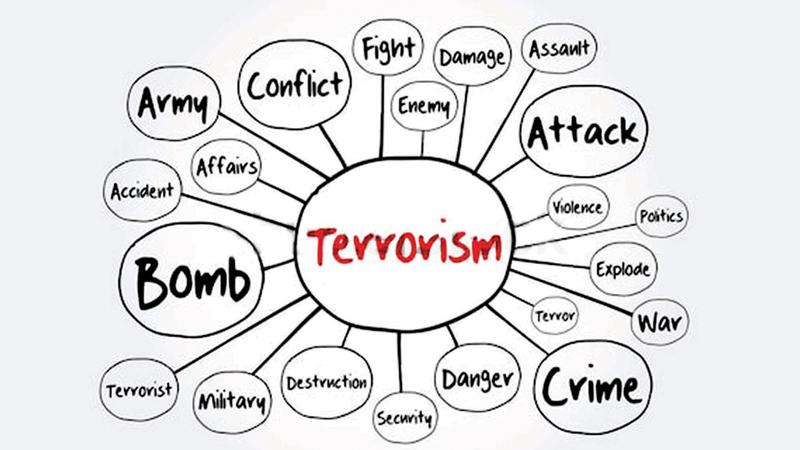
More than a month after the shocking Easter bombings, many rumours and speculations regarding the true affiliation of the suicide bombers and the details related to the masterminds behind the attack remain.
Investigations point towards an extremist Islamist group - the NTJ (National Thawheed Jama’at), who released a video of them pledging their allegiance to ISIS, an international terrorist organsation.
Despite the groups they belong to, the labels they assign or the apparent affiliations, the fact is that each individual responsible for the bombings took it upon himself to carry out an attack that would gravely harm and kill hundreds of civilians. Regardless of the justification - that the attack was in faith for a higher cause, the intention behind the action is clear. Harm, hurt and destroy.
Members of a terrorist group, if we take ISIS, are not all born of the same religion. Many are of other faiths who have later joined the group/affiliated themselves with the cause. It is always a personal decision, for whatever reason, that an individual would choose to become what we identify as a terrorist. Evidently, terrorism’s harm, hurt and destroy mindset lies within the individual and not the religion.
It has been the personal decision of every other follower of Islam who is not a member of this terrorist group to not join, or even to stand against it. They are not terrorists.
On the flip side, think about a follower of the philosophies of Buddhism, Hinduism or Christianity who has the intention to harm, hurt and destroy. Certainly not every Buddhist, Hindu, or Christian is righteous and good. For instance, Wirathu, the nationalist Buddhist monk in Myanmar, was issued an arrest warrant in May on a charge of sedition. He is known for hate speech and rhetoric against minority Muslims (particularly the Rohingya) and was even banned by Myanmar’s highest religious authority from preaching for one year in 2018.
Just recently software engineer Tom Anderson conducted a text analysis to identify whether violent content was more commonly found in the New International Version of the Old and New Testaments or in an English-language version of the Quran from 1957. His analysis found that the Old Testament was twice as violent as the Quran, discrediting the argument that Islam is inherently a more violent religion. It places Christianity at a higher position, proving that violence lies in the interpretation of these texts and not within the religion itself.
There is an example of this far closer home. Which interpretation of Lord Buddha’s teachings were followed by those responsible for the anti-Muslim riots that took place weeks after the Easter bombings? Mobs blaming the entire Muslim community for the terrorist attack rioted and caused chaos island-wide. In the name of protecting our ‘Sinhala-Buddhist’ nation, they attacked and set fire to the homes, shops and mosques of innocent Muslims. What was their mindset? If they were not stopped by the authorities how far would they have gone? Are they to be excused from the terror they inflict simply because of their ethnicity? If you and your family were threatened and attacked and it was your home that was burnt to ashes - would you defend those mobs?
It is the mindset of a terrorist that he embodies when he destroys the lives and livelihood of innocent citizens. How different was their intention to that of the suicide bomber?
It was an assertion of power and identity (in both cases) and they did after all want to harm, hurt and destroy.
It is also the case that all of us at some point or the other would have come across Muslims who are peaceful, kind and generous. It is ignorant in the least and racist at the worst to assume that every Muslim would want to harm and destroy innocents.
Have you never met a Muslim who extended a kind gesture? A mother of a Muslim friend who entertains you and your friends at her house, a colleague who supported you at work, or a friend who will always have you back?
Similarly, have you never been shown aggression or seen violent words and actions from people of other communities? There are many other unforgivable crimes such as rape, sexual assault, child abuse, human trafficking and domestic violence that Buddhists, Hindus and Christians also engage in. It is always an individual choice to harm someone or to destroy their lives. Religion is an excuse, not the cause.
If you have ever had the intention to harm, hurt or destroy someone what makes your mindset any different from that of a terrorist? Do your defences and justifications matter? The suicide bombers of the Easter Sunday attack had excuses too. They too believed they were right.
Violent thoughts lead to violent words and actions. In the past month since April 21, 2019, we have seen two types of terrorists. Some who identified themselves as Muslims and some who identified themseves as Sinhala Buddhists.
Both types had the same intention to harm, hurt and destroy. Putting an end to both these groups is equally important.
Terrorism is not a religion, it is a mindset.
